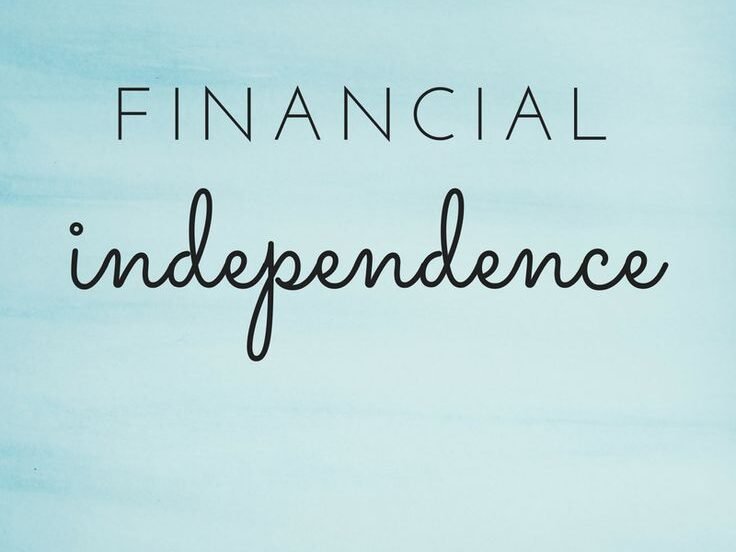MONEY PROBLEM??? FOR THE GEN Z KIDS
HERE IS SOME OF THE INSIGHT OF MONEY PROBLEM AND THERE SOLUTIONS

The Afford Anything Gen Z Beginner’s Guide to Money
Hey Gen Z friends,
Welcome to adulting and the world of personal finance! As Generation Z, you have the incredible advantage of time on your side when it comes to investing and reaching financial independence.
Leverage your youth as a time of opportunity and learning, thinking boldly about how to create the financial future you want.
SO, LETS TALK ABOUT GEN Z AND FINANCIAL INDEPENDENCE

So What is Financial Independence?
Afford Anything is a movement against the standard advice that you should shackle yourself to a desk for 40 years, buy crap on credit, and pat yourself on the back if you save 10 percent for retirement. Ugh.
When I was 21, I bought a 2nd hand car for $300
That’s not a typo. I didn’t put the decimal point in the wrong place. My car cost four hundred dollars. I negotiated it down from the asking price of $450.
I drove it for a year and a half, and I didn’t put a dime into it other than standard oil changes. Of course, I didn’t drive much.
Most of the time, I walked everywhere. To lead that pedestrian lifestyle, I needed to live in the center of town. But square footage in the center of town is expensive, so I lived in a tiny apartment. It was so small that I could reach my kitchen sink from my bed. I could stand with one foot on my mattress and wash the dishes.
When people hear about those days, they often say: “Your life must have sucked.”
You know what sucks? Sitting in a cubicle all day. Wasting your life in bumper-to-bumper traffic. Missing your family because you need to work late.
My life was actually pretty awesome during those first few years. I hung out with friends. I snowboarded. I grew plants and read books and had long, leisurely breakfasts.
I had zero debt and a sky-high savings rate. I stashed fifteen percent of the income from my day job into my 401(k); I wrote freelance articles during the evenings and weekends as a side hustle and stashed every penny, after taxes, into my travel-the-world fund.
Every time someone looked at my junky old car or my microscopic apartment and said, “Wow, that sucks,” I’d think:
You know what sucks? NOT having the choice to bike across Spain, ride a camel near the Pyramids, snorkel the Great Barrier Reef, view the Taj Mahal, see the Colosseum in Rome, check out Komodo Dragons in Indonesia, ride bikes in Burma, scuba-dive in Thailand, taste my way across Vietnam — all of which I did, and much more, by age 25.
Those experiences are leagues better than living in a gorgeous home.
To be clear: This proposition won’t always be an “either/or.” If you have the money to enjoy both (world travel and creature comforts at home), that’s awesome. (I easily have that type of money now — which is why I’m a massive advocate of ramping up your income and investing like a warrior.)
Investing, real estate, building businesses, creating passive income — these are self-sustaining long-term successes. Learning to be a top performer is crucial for the long game. This allows you to create wealth, which leads to financial freedom. And once you achieve complete freedom, you can enjoy anything. But that’s the long game.
For the moment, living according to the above principles will help you focus on the short game: hopping onto an airplane and launching your next adventure.
Can you continue living with roommates instead of having your own place? Keep driving a used car? Resist pressure to overspend on status items? Delay major purchases like a house?
Making short-term sacrifices by hacking your housing, transportation, and lifestyle costs buys you long-term freedom.
As Gen-Zs, you have a tremendous opportunity – if you start investing now and living below your means, financial independence could be achievable in your 30s or 40s.
I know it feels daunting. Most people your age aren’t thinking about this stuff yet. But as an early adopter willing to think long-term, you’ll have an incredible edge.
Then channel that surplus into assets that compound and produce passive streams of income. After a decade or so, you’ll hit an inflection point where your money is working harder than you ever could by trading hours for dollars.
That’s when you get to reap the rewards and design your ideal lifestyle. This probably sounds boring and nerdy if it’s the first time you’re hearing it. But trust me, nothing beats the feeling of “adulting” on your own terms, with no boss or debt holding you back!

Now let’s talk about HOW to achieve financial independence .
Adopt the Anti-Budget.
Does the idea of scrutinizing a line-item budget sound super lame to you?
Cool. It sounds lame to me, too.
Don’t waste your time with it.
Instead, skim your savings off the top and live on the rest.
This is called the “anti-budget,” because you’re not detailing the amount you spend on groceries vs. electricity vs. toothpaste.
Your job is simple: automatically divert savings from every paycheck. Stash this in a separate account, which you use for debt payoff, investing, or storing cash reserves. Relax about the rest.
Decoding Your Pay Stub
Understanding your paycheck is key to financial literacy – here’s what every paycheck consists of:
Gross Pay: Your total pay before deductions.
Taxes: Federal, state, local deductions.
Deductions: Health insurance, 401k, etc.
Net Pay: This is what you budget with.
Boost Reserve funds in One Percent Increments
Pay off obligation: Credit cards, payday advances, and other obligation with double-digit intrigued rates ought to be paid off forcefully some time recently any other budgetary needs. This stuff keeps you stuck in a obligation cycle.
Emergency Finance: 3-6 months’ costs in a high-yield investment funds account. Some time recently you do any other contributing, construct a cash pad of 3-6 months fundamental living costs. This ensures you from having to go into obligation when unforeseen costs come up. Feel like you can’t spare anything? Begin with one percent of your salary, which is $10 for each $1,000 that you earn.
Short-Term Objectives: Spare for get-aways, weddings over 1-3 years.
Medium-Term Objectives: House down installment, grad school in 3-5 years.
Long-Term Objectives: Reliable investment funds for retirement and money related freedom over decades.
There’s a constrain to the sum you can spare. Your pay, in any case, holds boundless upside potential. Focus on finding openings
VISIT TO MULTIPLE FINANCIAL SITES FOR IMPORTANT MARKET REALTED NEWS AND BLOGS
ONE OF THIS SITE IS https://www.bizjournals.com/